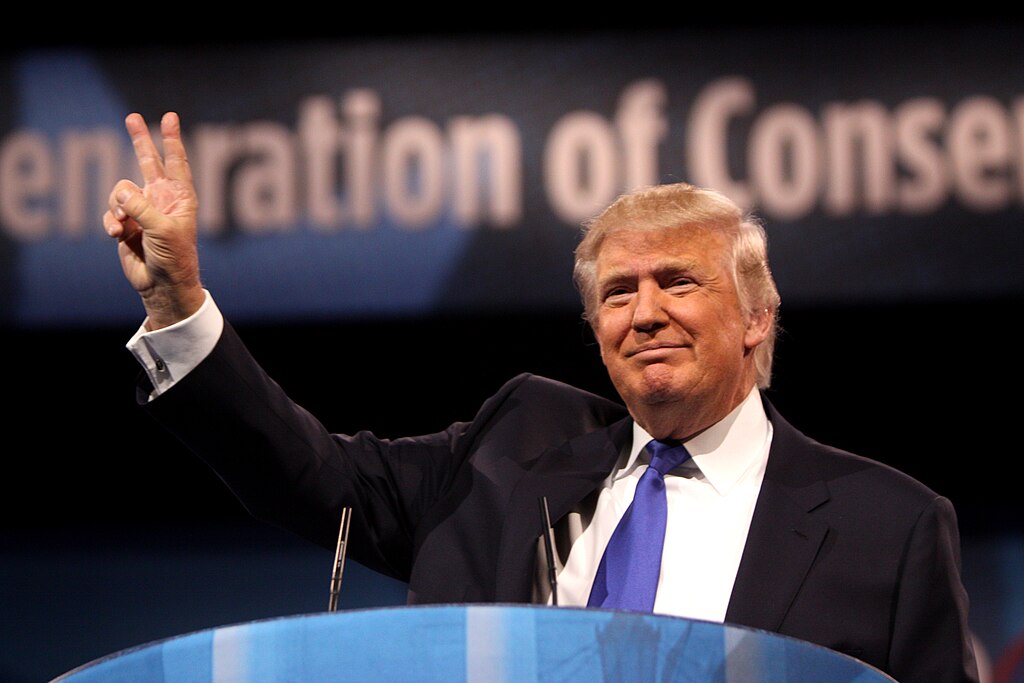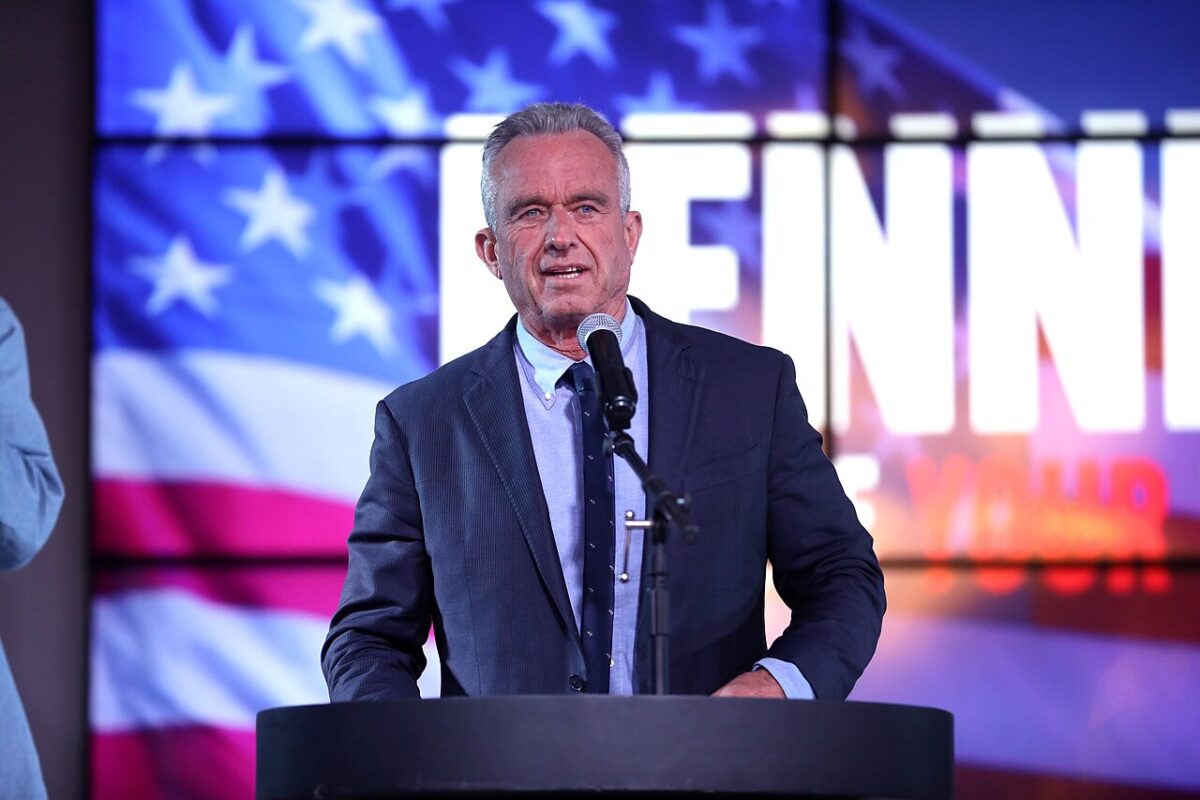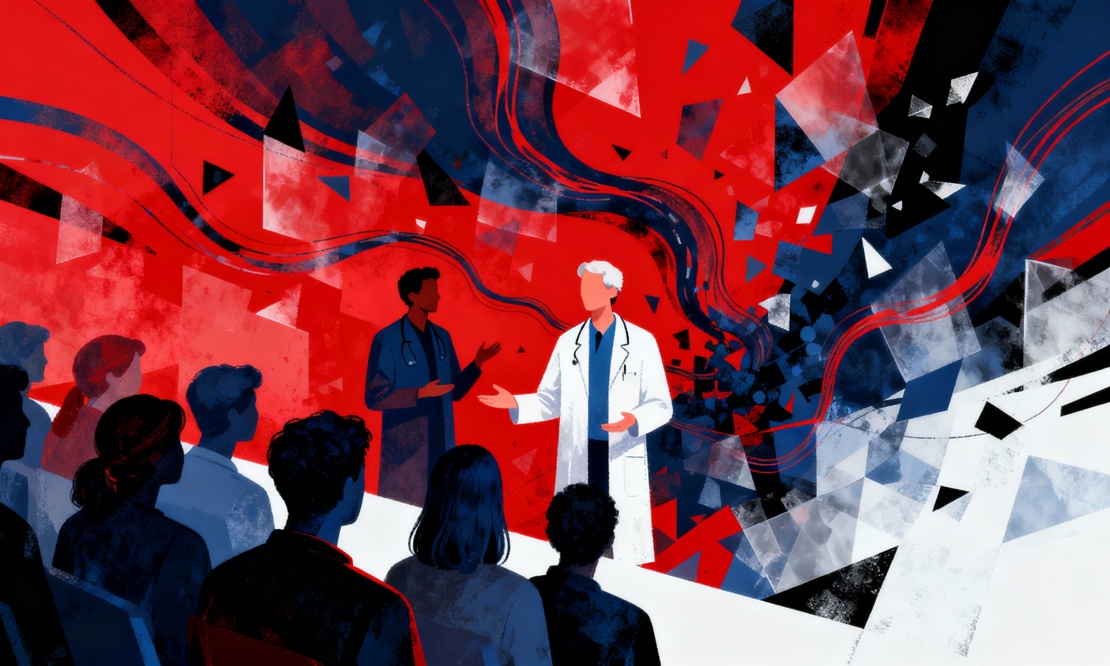 #News
#News
Is American science at risk under Donald Trump?
The Republican’s return to the White House has reignited concerns about the direction of science and technology policies in the US over the coming years
 Donald Trump during the 2024 presidential campaign; his record on science and technology policy raises questions and concerns | Image: Gage Skidmore/Wikimedia Commons
Donald Trump during the 2024 presidential campaign; his record on science and technology policy raises questions and concerns | Image: Gage Skidmore/Wikimedia Commons
Donald Trump’s election to a second term has reignited the international scientific community’s concerns regarding the direction science and technology will take in the USA. And it is not a surprise. During his first administration (2017–2021), Trump was criticized for interfering in scientific agencies, slashing budgets, and taking controversial stances on critical issues, such as climate change and public health.
Trump interfered with science and health agencies, pressuring them and even forcing them to change reports and recommendations so that they would align with his beliefs and public statements. During the COVID-19 pandemic, he went so far as to suggest that sunlight and injecting bleach could help fight off the novel coronavirus (SARS-CoV-2).
Around the same time, Trump claimed that the US Food and Drug Administration (FDA) had approved the use of hydroxychloroquine for people infected with the virus.
His announcement triggered a mad rush to pharmacies in the US and other parts of the world, including Brazil, with people desperate to get hold of the drug, which is only sold with a doctor’s prescription.
Many drugstores sold out of the medication, causing problems for people who needed it for its true purpose: to treat lupus and rheumatoid arthritis.
In 2020, Trump publicly pressured the FDA to speed up approval of convalescent plasma for individuals affected by COVID-19 because he wanted to announce it as a breakthrough treatment for the disease at the Republican National Convention.
A week before the convention, he tweeted that the FDA was delaying approval of treatments and vaccines to damage his chances of reelection.
The impact of Donald Trump’s policies on US science and technology
Click on the topics below to learn more:
-
Interference in science and health agencies
-
- During his first term, Trump put pressure on agencies such as the FDA and NIH, influencing reports and recommendations.
- Controversies surrounding the COVID-19 pandemic: promoting treatments with no scientific evidence, such as hydroxychloroquine and convalescent plasma.
- Consequences: shortages of essential medicines and loss of trust in scientific institutions.
-
Climate change denial and environmental policies
-
- Trump repealed more than 100 environmental regulations during his first term.
- He withdrew the US from the Paris Agreement, jeopardizing global greenhouse gas emission targets.
- Future plans include withdrawing once more from the agreement and increasing nuclear energy production.
-
Threats to research funding
-
- Attempts to cut the budgets of scientific agencies, especially those related to climate change.
- With Republicans in control of Congress, Trump will more easily be able to push through his agenda.
- Public climate data, essential for research and innovation, could be at risk.
-
Controversial appointments to key positions
-
- Robert F. Kennedy Jr: Vaccine critic appointed head of the Department of Health and Human Services.
- Jay Bhattacharya: advocate of natural immunity, nominated to lead the NIH.
- Martin “Marty” Makary: opponent of public health measures, named commissioner of the FDA.
- Impacts: risk that science will be politicized and public trust in government agencies eroded.
Climate change denial
Trump has also never hidden his views on climate change, on several occasions expressing doubts about it being caused by human activity and even calling global warming “one of the greatest scams of all time.”
It is no coincidence that he repealed more than 100 environmental regulations during his first term, contributing to an increase in greenhouse gas emissions in the country.
In one of his most drastic actions, he withdrew the US from the Paris Agreement, an international treaty signed by many countries in 2015 with the aim of limiting the increase in global warming—meaning the rise in the average global temperature in relation to the preindustrial era—to less than 2 °C, preferably keeping it below 1.5 °C.
At the time, he claimed that the targets imposed on Americans were too high, but the country returned to the agreement in 2021 under the Joe Biden administration.
Trump’s return to the White House is expected to worsen the global climate crisis. He has already signaled that he will withdraw the US from the Paris Agreement once more and will support an increase in nuclear energy production.
The Republican also intends to repeal President Joe Biden’s rulings on electric vehicles and other policies aimed at reducing emissions from automobiles.
Research funding at risk
Another concern among the scientific community is research funding. In his first term, Trump repeatedly made efforts to reduce the operating budgets of agencies involved in climate change studies, although he was often stopped from doing so by Congress.
In the recent election, however, the Republican Party secured total control of Congress, meaning Trump will likely have an easier time pushing through his agenda over the next two years.
“We do not yet know the new administration’s policies, so we cannot anticipate how they will affect climate change research,” Peter Girard, vice president of communications at Climate Central, a US nonprofit organization that analyzes and disseminates information about climate change and its solutions, told Science Arena.
“One thing is certain: the scientific value of climate data collected and made available by the government is incomparable and invaluable,” he stresses.
According to Girard, it is these resources that make the climate research carried out at institutions like Climate Central possible.

“Furthermore, public data and information contribute to the development of energy solutions, risk models, and early warning systems that benefit communities around the world,” says Girard.
The scientific community became even more worried about Trump’s second term in early December, when Robert F. Kennedy Jr, an outspoken denier of vaccine safety and efficacy, was announced as head of the Department of Health and Human Services (HHS).
The HHS encompasses the following institutions:
- The National Institutes of Health (NIH), the leading funding agency for biomedical research in the USA
- The Department of Energy (DOE)
- The North American Space Agency (NASA)
- The National Science Foundation (NSF), the leading funding agency for basic science in the USA
“Robert F. Kennedy Jr is a steadfast denialist who believes that AIDS is not caused by the human immunodeficiency virus (HIV) and who stated in a podcast last year that no vaccine is safe and effective,” says Paul Offit, director of the Vaccine Education Center at the Children’s Hospital of Philadelphia, where he also works as an attending physician in the Division of Infectious Diseases.
“I have no doubt that [Robert F. Kennedy Jr] will do everything he can to delegitimize vaccines in the USA over the coming years,” says Paul Offit, director of the Vaccine Education Center at the Children’s Hospital of Philadelphia.
Trump nominated Dr. Jay Bhattacharya to run the NIH, which is expected to have a budget of US$48 billion in 2025.
Bhattacharya, a professor at Stanford University School of Medicine, is one of the authors of the Great Barrington Declaration, an anti-lockdown manifesto published in 2020 that stated that the novel coronavirus should be allowed to circulate freely among young, healthy people who were “at minimal risk of death” so that they would develop natural immunity, while efforts at prevention should be targeted at older, more vulnerable people.
Trump also nominated Martin “Marty” Makary to be the next FDA commissioner.
The British-American surgeon became known during the pandemic for his opposition to vaccination mandates and other public health measures.
While some experts are cautiously optimistic that he will make much-needed changes at the FDA, others worry that Makary, a frequent guest on Fox News, will politicize science.
“What they all have in common is that they do not trust the very institutions they are going to lead—they think that they did a poor job in the pandemic and now need to be overhauled,” Offit told Science Arena.
“Some of my colleagues believe they will erode public trust in government science and health agencies,” Offit says.
“I think the opposite: it is precisely because trust in these bodies has been shaken that we are now having to deal with these individuals in key positions.”
“People are being appointed because they show loyalty to Trump, not because they are competent. These will be difficult times for science in the United States,” says the researcher.
*
This article may be republished online under the CC-BY-NC-ND Creative Commons license.
The text must not be edited and the author(s) and source (Science Arena) must be credited.


